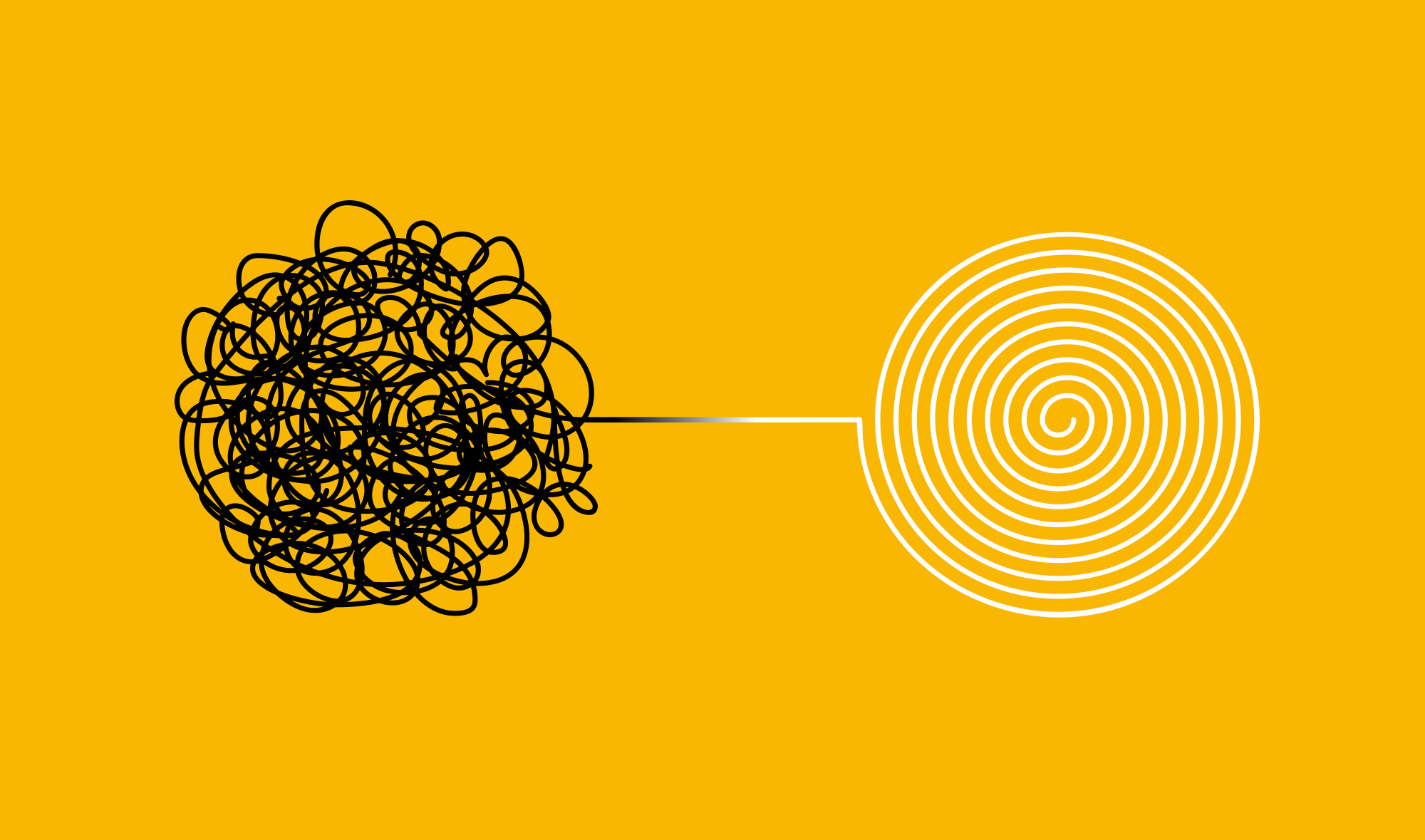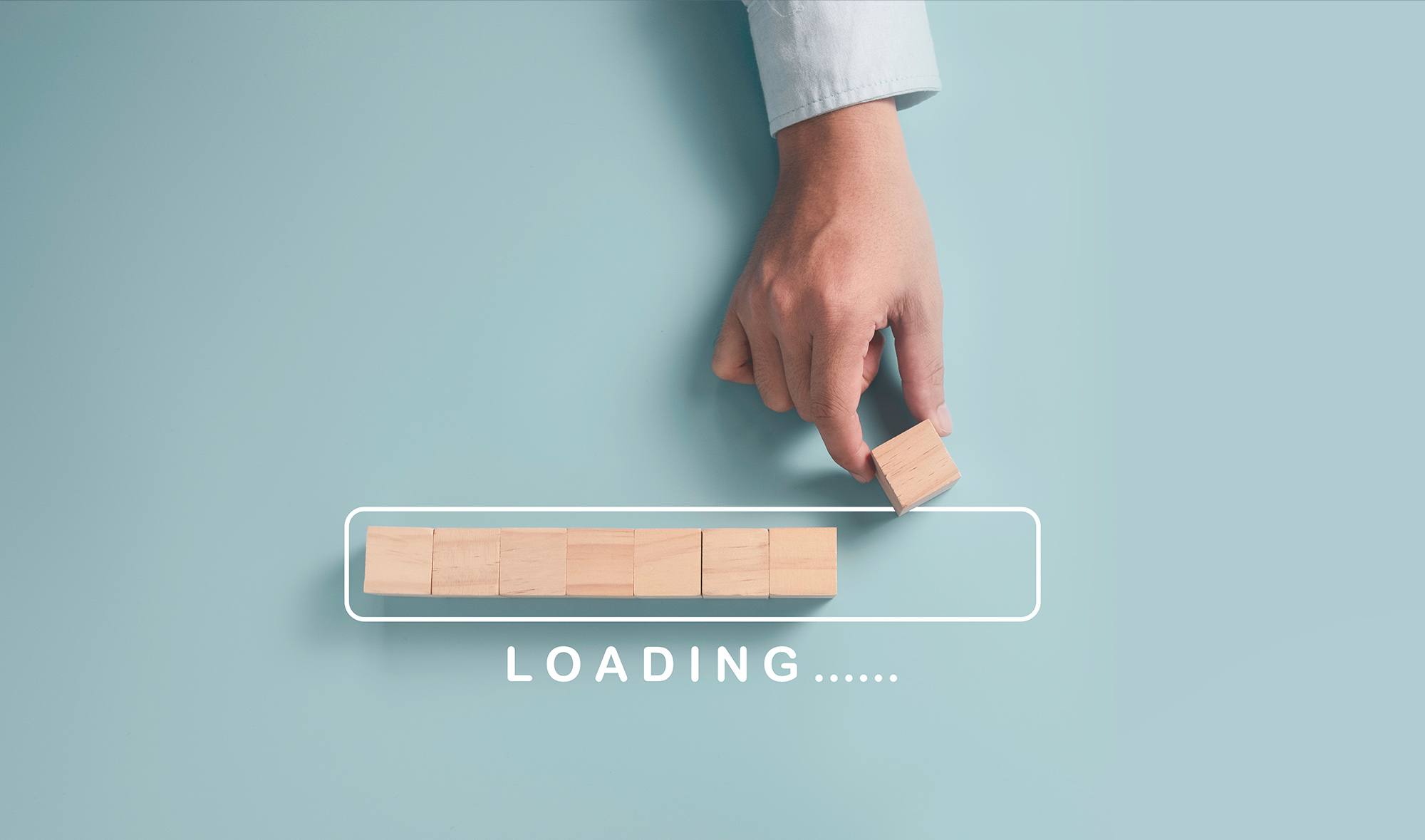
Are you considering life or business coaching? If so, you may have some questions about what to expect. Here are some of the most frequently asked questions about life coaching vs. executive coaching - along with some helpful answers - both from a client's and prospective coach's perspective.
Join our Newsletter
Transform your career with our personal growth insights. Get one valuable tip right in your inbox every Saturday morning.
Asking as a potential client

Coaching FAQ: Is coaching for me?
What is coaching?
Coaching is a process that helps people identify and achieve personal or professional goals. A coach works with a client to help them clarify their goals, develop action plans, and make necessary changes to achieve their objectives and accelerate their personal development.
Is coaching the same as therapy?
Coaching is not therapy, counseling, or consulting. It is also not advice-giving. Coaching is a professional partnership that helps clients develop self-reflection and achieve their goals.
How is coaching different from therapy?
The focus of coaching is typically on the present and future, rather than on past experiences. Coaching also tends to be more action-oriented than therapy, with the goal of helping clients make specific changes or reach specific goals.

What is a life coach?
Life coaches help people identify and achieve their personal and business goals. A life coach will help you clarify your goals, find obstacles that are holding you back, and develop a plan to overcome those obstacles. Life coaches will ask powerful coaching questions that can help you develop new skills, gain better self-awareness, change your thinking patterns, and improve your overall well-being and work-life balance.
Is life coaching a viable career?
Yes, life coaching can be a viable career for some individuals. It requires skills in communication, empathy, motivation, and the ability to help clients set and achieve personal and professional goals. Success in life coaching as a profession often depends on building a strong client base, marketing oneself effectively, and providing high-quality services.
Join our Newsletter
Transform your career with our personal growth insights. Get one valuable tip right in your inbox every Saturday morning.
What is career coaching?
Career coaching is a process that helps people identify and achieve their career goals. Career coaches will help you clarify your goals, assess your skills and strengths, and develop a plan to reach your objectives. Aside from offering career advice, a career coach can also help with job search strategies aimed at finding your dream career. Check out our career coaching blog for more info about career development coaching topics and popular career coaching models. Or check our individuals page for a career life coach near me.
What are the characteristics of great executive coaches?
There is no one-size-fits-all answer to this question, as the best executive coaches tailor their approach to fit the needs of their clients. However, some common characteristics of great executive coaches include being able to build trust quickly, demonstrating excellent active listening skills, and having a deep understanding of human behavior.

What are the benefits of coaching?
Coaching can help you clarify your goals, develop a plan to achieve them, and make necessary changes to reach your objectives. Great coaching can also help boost your confidence and motivation, provide ongoing support and accountability, and unlock new possibilities.
What are the drawbacks of coaching?
The biggest potential drawback to coaching is that it may require a significant investment of time and money. Coaching also requires a commitment from both the coach and the client to see results.

How do I know if coaching is right for me?
The best way to determine if a coaching model is right for you is to schedule a complimentary coaching session. This will give you an opportunity to meet with a coach, ask questions and get a feel for the coaching process.
What can I expect from coaching?
This will vary depending on the coach you work with and your individual goals, but in general, coaching can help you gain clarity on what you want, set and achieve goals, overcome obstacles, and make positive changes in your life (from improving your daily routine to develop a different perspective on life). Coaching is a collaborative process, so you can expect to be an active participant in your sessions. This may involve setting homework assignments or taking action steps outside of sessions. The best outcome is often achieved by developing a better relationship with yourself and those around you.
How do I select the right coach?
What should I look for in a coach?
When looking for a coach, it’s important to find someone who is a good fit for you personally and professionally. Make sure to interview several coaches before making a decision, and ask questions about their coaching style, experience, and training.
Do coaches give advice?
No, coaches do not give advice. Instead, they help a person find their own solutions to their challenges so they can develop better life and leadership skills. This process empowers the person and helps them develop skills they can use in the future.
How long does coaching take?
The length of coaching depends on the individual client and their goals. Some people may only need a few sessions, while others may work with a coach for several months or even years.
How often do I need to meet with my coach?
The frequency of conversations also depends on the individual client and their goals. Some people meet with their coach weekly, while others meet monthly or even quarterly.
What are the coaching fees?
Coaching fees vary depending on the coach, the type of coaching, and the frequency of sessions. It’s important to discuss coaching fees with your coach before starting the coaching relationship.
What are the coaching standards?
There are several coaching organizations, such as the International Coach Federation (ICF), that have established coaching standards. These standards help to ensure that coaching is provided in an ethical and professional manner.

What are the different types of coaching?
There are many different types of coaching, including life coaching, business coaching, executive coaching, wellness coaching, relationship coaching, and more. The type of coaching you choose should be based on your specific goals. For further reading on the topic, check out the 15 most common types of coaching.
What are the different coaching methods?
There are many different coaching models, but some common ones include solution-focused coaching, strengths-based coaching, and action-oriented coaching. Again, the best method for you will depend on your goals.
What is the coaching process?
The coaching process typically begins with an initial consultation, during which the coach and client will discuss the client’s goals. The coach will then help the client develop a plan to achieve those goals, and they will meet periodically to track progress and make necessary adjustments.

10 questions to ask at the beginning of your first coaching session
During your first coaching session, you may want to ask about the coach’s experience, coaching method, and frequency of conversations. You should also discuss your goals for coaching and what you hope to achieve. Finally, be sure to ask about coaching fees. Here is a career coaching questionnaire with a few high-impact questions you should ask:
1. What are your coaching qualifications?
2. What is your coaching experience?
3. What coaching methods do you use?
4. What is your coaching fee per session?
5. Do you have any testimonials or references I can contact?
6. How often do you meet with each client?
7. How long does each session typically take?
8. What are the coaching standards? Can you give me an example?
9. What is the coaching process?
10. How will my life change by working together?
These are just a few of the questions you may want to ask during your first coaching session today. Remember, the coaching relationship should be a partnership, so make sure you feel comfortable with your coach before moving forward.

10 questions to ask to evaluate your progress
As you work with your coach, you should periodically ask questions to evaluate your progress. Here are a few examples of coaching review questions you should ask:
1. What goals have I achieved?
2. What skills have I learned?
3. How have I grown as a result of coaching?
4. What challenges have I overcome?
5. What new opportunities have I pursued?
6. How has coaching helped me in my personal life?
7. How has coaching helped me in my professional life?
8. What results have I seen in my business or career?
9. How has coaching impacted my relationships?
10. What positive changes have I made in my life as a result of coaching?
Evaluating your progress is an important part of coaching. It allows you to see how far you’ve come and identify areas where you may still need help.
These are just a few of the coaching questions you may have about coaching. If you have more coaching questions, be sure to ask your coach during your initial consultation. And remember, coaching is an investment in yourself, so make sure to choose a coach who is a good fit for you and your needs.
Asking as a (potential) coach:

Questions to ask when considering becoming a coach
What are the requirements to be a coach?
The requirements to be a coach vary depending on the coaching organization, but most organizations require that coaches have a certain amount of experience and training. Additionally, many coaching organizations require that coaches complete continuing education credits on a regular basis.
What does it take to become a coach?
There is no one-size-fits-all answer to this question, as the coaching process is different for everyone. However, most life coaching topic ideas and careers start by completing a coaching program or training course. Additionally, many coaches have years of experience in their field before becoming a coach.
What is the difference between life coaching and career coaching?
The key difference between a corporate life coach versus career empowerment coach is the area of the client's life they are zeroed in on. Life coaching firms primarily examine how to help people achieve their personal goals, while career coaching helps people navigate their professional lives.
Are life coaching questions different from those asked in leadership coaching?
Coaching questions are different based on what the client is hoping to achieve. Life coaching keywords and questions may focus on topics such as goal setting, time management, and stress management, while leadership coaching questions may focus on topics such as team building and communication. Ultimately, executive coaching focuses primarily on developing talent for the firm. There are no wrong questions in coaching, but some may be more helpful than others in achieving the coaching goals.
Why do coaches ask coaching questions?
Asking powerful coaching questions is one of the most important tools coaches have in their toolkits. Questions aid the conversation and help coaches understand a person’s goals, challenges, and needs. They also help people get clarity on their thoughts and feelings.

What are some common executive coaching questions?
Some common professional coaching / CEO coaching questions include:
- What are your goals?
- What challenges are you facing?
- How can I help you?
- What do you need to do to achieve your goals?
- What are your thoughts on this issue?
- How would you behave in a similar situation?
- What are your feelings about this issue?
- What is your biggest obstacle to achieving your goal?
- How can you overcome that obstacle?
- What resources do you need to achieve your goal?
- Who can help you achieve your goal?
- What are your next steps?
- How do you plan to practice?
Looking for more inspiration? Check out our ultimate guide on how to become an executive coach.
What are the different coaching credentials?
There are several coaching credentials available, such as the Certified Professional Coach (CPC) credential from the International Coach Federation (ICF). There are also coaching credentials specific to certain types of coaching, such as business coaching or relationship coaching.
How do I become a certified coach?
The process of becoming a certified coach varies depending on the coaching credential you’re interested in. Typically, it involves completing a coaching program and passing an exam.
How do I find coaching clients?
There are many ways to find coaching clients, including online directories, coaching referrals, and networking. It’s important to market yourself in a way that resonates with your ideal client.
What should I expect from my coaching sessions?
Each conversation typically lasts 60 minutes, though some coaches offer shorter or longer sessions. During each session, clients usually share the goals and challenges they want to focus on, and coaches ask questions to help clients gain clarity. Coaching sessions often end with the coach and client agreeing on action steps for the client to take between coaching sessions.
What does the coaching relationship look like?
The coaching relationship is built on trust, respect, and confidentiality. The coaching relationship is also a partnership, in which both the coach and client are committed to the client’s success. The biggest win is getting your client come to trust you as they would a close friend.
What is coaching confidentiality?
Coaching confidentiality means that your personal information and everything said in a session is kept private between the coach and client. This confidentiality agreement helps create a safe space for each person to share their thoughts and feelings.

What are some coaching tools and techniques?
Some coaching tools and techniques include goal setting, action planning, brainstorming, and role-playing. Coaches also use questions extensively to help clients gain clarity and insight.
As a coach, what is the most effective way to ask coaching session questions?
There is no one “right” way to ask coaching questions. However, some coaching questions are more effective than others. Nonjudgmental, curiosity-based, open-ended questions are generally the most effective. They also avoid yes or no answers, which can limit the coaching conversation.
How can I become a better coach?
Some ways to develop better coaching skills and become a better coach include attending coaching training programs, reading coaching books and articles, and joining coaching organizations. The best way to become a better coach is to practice coaching regularly.
What are some coaching resources?
Some coaching resources include coaching books, coaching articles, coaching websites, and coaching directories. These resources can help coaches learn more about the coaching process and coaching tools and techniques.
What are some coaching challenges?
Some coaching challenges include working with clients who are resistant to change, dealing with clients’ personal issues, and managing coaching time effectively. These challenges can be difficult, but they can also be opportunities for growth.
How can I effectively keep a direct report of my client's progress?
A direct report of your client's progress can be kept in the form of a coaching journal. This journal can help you track your client's goals, action steps, and progress over time so that you can effectively coach them toward success.
Using a coaching software program, and meeting with your client regularly to discuss progress is also important. Whatever method you choose, make sure to keep a direct report about how the client feels and be consistent in tracking your client’s progress over time. Direct reports are particularly important when working with clients who are resistant to change.

Conversational Structures: The GROW Model
Coaching is a process that helps people achieve their goals by clarifying what they want, identifying obstacles, and developing action plans. The GROW model is one popular framework worth using in any coaching conversation. It stands for Goal, Reality, Options, and Way forward.
Using the GROW model can help you have more effective coaching conversations with your clients. Here's how it works:
Goals (what do you want?)
The first step is to help your client clarify their goal. What do they want to achieve? Why is this important to them? You should ask the client some questions to help establish the goal. Make sure they have a specific purpose and that they come directly from internal motivation. Eventually, it will be easier to get there.
Reality (where are you now?)
Next, you'll help your client describe their current reality. What's happening now? What has been happening up until this point? What are the obstacles? It is also advisable to have an objective assessment of what is going on with our current situation. It helps them put their goals into context, highlighting their current situation and their hopes for the future.
Options (what could you do?)
Once you and your client have a clear understanding of the situation, it's time to brainstorm options. What are some possible courses of action? What are the pros and cons of each option?
Way forward (what will you do?)
The final step is to help your client choose an action plan and develop a path forward and timeline. What will they do? When will they do it? How will they know if they're successful? Often these actions are based on concrete actions with your customer to dig deeper and move their main objective forward.
The GROW model is just one way to structure coaching conversations. There are many other frameworks out there, such as the OSKAR coaching model. The most important thing is to find a framework that works for you and your clients.

10 powerful questions to open your first session with
There are many coaching questions that you could ask as a coach, but these are ten of the most important ones. Asking these coaching questions at the beginning of your first session will help you to get to know your client, listen and understand as your client describes their goals, and figure out how you can best support them.
1. What are your coaching goals?
2. What would you like to change or improve in your life or business career?
3. What is currently working well for you?
4. What is your ideal coaching outcome?
5. What obstacles or challenges do you anticipate during coaching?
6. How will you know if coaching is successful for you?
7. What resources or support do you need from your coach?
8. What coaching style or approach do you prefer?
9. What are your commitments to coaching? (e.g. time, energy, open-mindedness)
10. What else would you like me to know about you?

Conclusion
If you're considering coaching, or if you're already working with a coach, we hope this article has helped to answer some of your questions. If you have any other questions or want to learn more about coaches and the coaching process, please don't hesitate to ask or check out the life coach resources for beginners on our better life coaching blog topics. Coaching is a powerful process that can help you achieve your goals and make lasting changes in your life and leadership development.
For more on this topic: The benefits of diversity and inclusion initiatives in the workplace.
Read more about: Executive Coaching
About Julian Lewis
Julian Lewis is a driven and accomplished professional with a passion for driving positive change in the business world. He is the co-founder and COO at Zella Life.
His own experience as a professional of color in a Fortune 500 company led him to discover the limitations for advancement that many professionals like himself face. Determined to reach his full potential, Julian became an established business coach and entrepreneur, committed to supporting others in their pursuit of personal and professional growth.
Today, Julian is a recognized corporate trainer, coach, and leader, known for his ability to leverage real-life experiences and evidence-based methodologies to affect positive change within individuals and organizations. As the leader of Zella Life's coaching division, he is dedicated to empowering individuals and businesses to achieve their full potential.